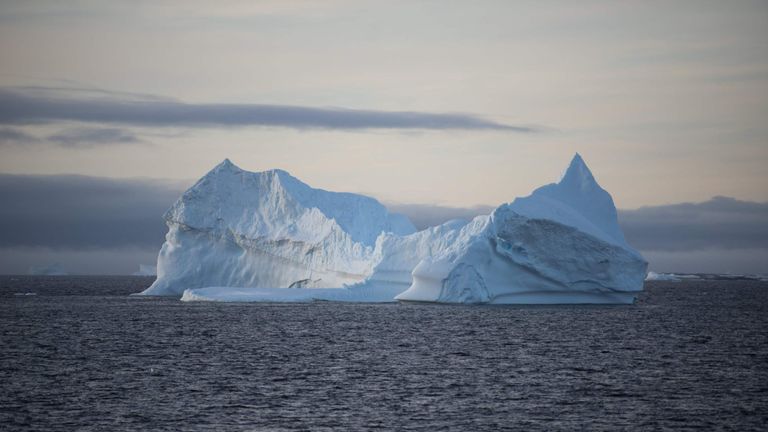Antarctica: Scientists reveal location of world's cleanest air
Experts say Antarctica appears isolated from the pollution and dust from other continents to the north.
Wednesday 3 June 2020 13:06, UK
The world's cleanest air is over the Southern Ocean near Antarctica, according to a study.
The air was described by researchers as "truly pristine" and unaffected by pollution.
Scientists from Colorado State University found that the air that feeds the lower clouds was free from any particles produced by human activity or dust from other continents.
A research ship sailed from Tasmania to within 24 miles (40km) of the Antarctic ice edge to conduct "bacterial profiling" from air filter samples.
But scientists found the air was so clean there was little DNA to analyse.
"We were able to use the bacteria in the air over the Southern Ocean as a diagnostic tool to infer key properties of the lower atmosphere," said co-author of the study Thomas Hill.
He said the particles they discovered were linked to marine bacteria from sea spray, with no contaminants from outside the region.
The findings go against other studies from oceans in the northern hemisphere and subtropics, which have found most microbes drift in from upwind continents.
"Antarctica appears to be isolated from southward dispersal of microorganisms and nutrient deposition from southern continents," said Mr Hill.
"Overall, it suggests that the Southern Ocean is one of very few places on Earth that has been minimally affected by anthropogenic activities."
is published in the Proceedings of the National Academy of Sciences.




